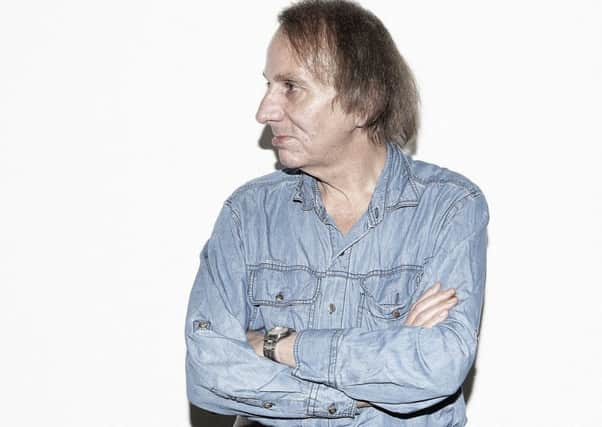Book review: Unreconciled: Poems 1991-2013, by Michel Houellebecq


Over more than 30 years Michel Houellebecq has moved from being the enfant terrible of French literature to a central, even Establishment position. He is, as the novelist and biographer Emmanuel Carrère has written, “one who is thinking about the sort of enormous shifts we all feel are happening” – happening, one may add, both to society and indeed western civilization, and to our understanding of ourselves as individuals in a time of scarcely precedented technological change and scientific advances. He is at the same time fascinated by all aspects of modernity, and repelled, disgusted, by much.
Many who have read, admired, been dazzled by his novels may not know that he is also a poet. This book is a selection – perhaps collection – of his poems and verses written over more than 20 years. Publishers William Heinemann should be thanked, indeed congratulated, for having decided to publish it in a dual language edition: the French on the left-hand pages, deft and faithful English translations by Gavin Bowd, Lecturer in French Literature at the University of St Andrews, on the right. The book is therefore available both to readers with good French and to those with none.
Advertisement
Hide AdHouellebecq is a lucid poet who, some may be surprised to discover, writes in the classical French tradition of, for example, Victor Hugo and Paul Verlaine. Many of the poems are in four-line stanzas. Most rhyme: ab ab, or aa bb, abba. For example:
“Un moment de pure innocence,/ L’absurdite des kangourous/ Ce soir je n’ai pas eu de chance,/ Je suit cerne par des gourous.” (“A Moment of pure innocence,/ The absurdity of kangaroos/ This evening I’ve had no luck, /I am surrounded by gurus.”) Bowd, wisely I think, has chosen not to find rhymes or echo Houellebecq’s rhyme scheme, preferring to concentrate on the meaning. Even readers who have a fair knowledge of French will surely find his translations useful.
Many of Houellebecq’s themes are traditional, as old as poetry itself: love, death, conflict, the beauty of the natural world, despair: “Le temps, le temps tres vieux qui prepare sa vengeance,/ L’incertain bruissement de la vie qui s’ecoule/ Les sifflements du vent, les gouttes d’eau qui roulent/ Et la chambre jaunie ou notre mort s’avance.” (Time, aged time, preparing its revenge,/ The uncertain rustling of passing life/ Whistling of the wind, drops of water dripping/ And the yellowed bedroom where our death advances.” “Jaunie” rather than “ jaune” – yellowed rather than yellow – is so good. When much modern poetry consists of trivial snapshots of daily life, it’s invigorating to come on a poet who speaks of first and last things, of love and its disappointements of cheated hopes, of the rare pleasure of moments of beauty.
In his poetry as in his novels Houellebecq addresses the existential problem of the world today where , for western man – urban man – God has been shifted to the sidelines, but where Man can no longer be, as seemed possible a hundred years ago, the measure of all things. He has created a world of plenty – of supermarkets overflowing with things to buy, a world of plastic and tall, soulless, concrete buildings, of the internet with its capacity for instant communication which is a parody of true conversation, just as freely available sex is a morose parody of love. It is a man-made world from which men and women find themselves displaced, an Eden where the serpent whispers that knowledge and happiness are to be found in sex and shopping. He responds to this promise and this world, and is ill-at-ease in it. A hundred years after Eliot wrote “The Waste Land”, Houellebecq tells us it is now our home, a home with barred windows:
“Les champs de betteraves surmontes de pylons/ Luisaient. Nous nous sentions etrangers a nous-memes,/ Sereine. La pluie tombait sans bruit, comme une aumone;/ Nos souffles retenus formaient d’oscus emblems/ Dans la ciel du matin./ Un devenir douteux battait dans nos poitrines,/ Comme une annunciation./ La civilisation n’etait plus qu’une ruine;/ cela, nous le savions.” The beetroot fields conquered by pylons/ Gleamed. We felt strangers to ourselves,/ Serene. Rain fell silently, like alms; Our gentle breathinmg formed obscure emblems/ In the morning sky./ An uncertain future beat in our chests,/ Like an Annunciation. Civilisation was now a mere ruin;/ That, we knew”.
That we knew – that we know – but are compelled to carry on.
*Unreconciled: Poems 1991-2013, by Michel Houellebecq, William Heinemann, 321pp, £16.99